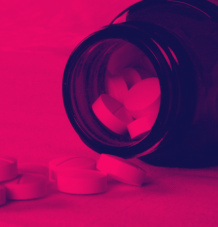WHO against antibody course
 The World Health Organization (WHO) is strongly advising against antibody treatments for COVID-19.
The World Health Organization (WHO) is strongly advising against antibody treatments for COVID-19.
The antibody drugs sotrovimab and casirivimab-imdevimab are not recommended for patients with COVID-19, says a WHO Guideline Development Group of international experts.
These drugs work by binding to the SARS-CoV-2 spike protein, neutralising the virus’s ability to infect cells.
The strong recommendation replaces previous conditional recommendations for their use and is based on emerging evidence from laboratory studies that these drugs are not likely to work against currently circulating variants, such as omicron.
After weighing up all the evidence, the panel judged that almost all well informed patients would not choose to receive sotrovimab or casirivimab-imdevimab.
In the same guideline update, WHO makes a conditional recommendation for the use of the antiviral drug remdesivir in patients with severe COVID-19, and a conditional recommendation against its use in patients with critical COVID-19.
These recommendations are based on results from five randomised trials involving 7,643 patients, showing 13 fewer deaths per 1,000 patients with severe covid-19 taking remdesivir, but 34 more deaths per 1,000 patients with critical COVID-19 taking the drug.
These new trial data provided sufficiently trustworthy evidence to demonstrate benefits in patients with severe COVID-19, but not critical COVID-19.
The panel considered the benefits of remdesivir to be modest and of moderate certainty for key outcomes such as mortality and mechanical ventilation, resulting in a conditional recommendation.
WHO also advises that three drugs used to treat arthritis - the IL-6 receptor blockers tocilizumab or sarilumab and the JAK inhibitor baricitinib - may now be combined, in addition to corticosteroids, in patients with severe or critical COVID-19.
This advice is based on new high-certainty trial evidence confirming a survival benefit for baricitinib with little or no serious adverse events when given in combination with corticosteroids and IL-6 receptor blockers.
However, the panel acknowledges some cost and resource implications associated with these drugs, which they say could exacerbate health inequities.
More details are accessible here.








 Print
Print